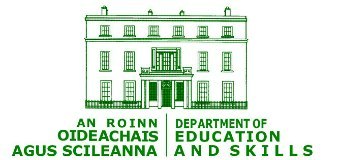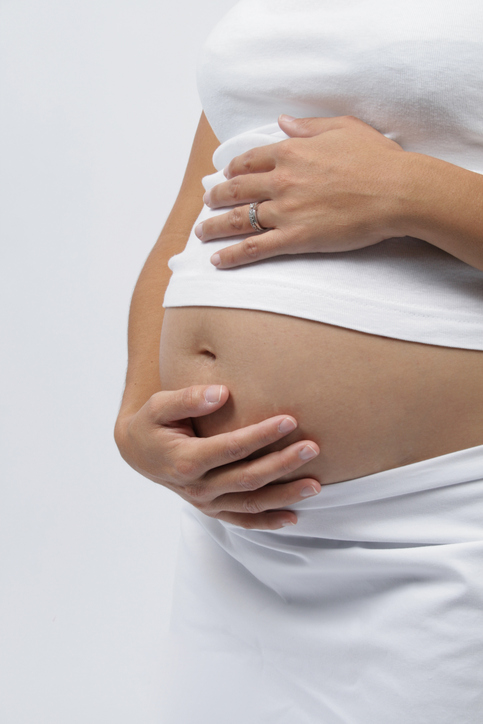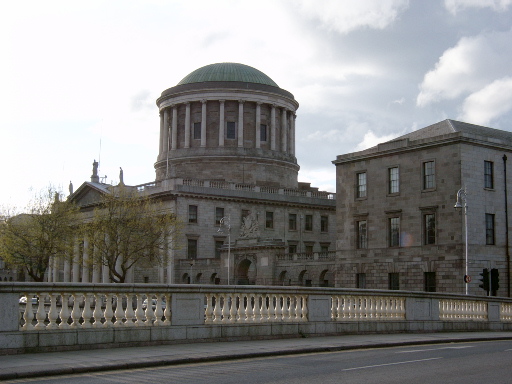
There is no evidence of a largescale desire by parents for the ethos of schools to change, even as it impacts the teaching of sex education.
In a reply to a parliamentary question from TD, Carol Nolan, the Minister for Education said that his Department had received only 60 communications in ten years, featuring complaints involving a perceived restriction on the teaching of Relationships and Sexuality Education [RSE] as a result of the ethos (or characteristic spirit) of schools.
The Laois-Offaly TD had asked Minister Norma Foley the details of the number of complaints made to her Department from 2011 to date involving the issue of school ethos, including the way in which it had shaped the teaching of RSE.

The US Supreme Court heard arguments yesterday into the constitutionality of Mississippi’s ban on abortion after 15 weeks of pregnancy, which could overturn the 1973 Roe v. Wade case which imposed a radical abortion regime on all fifty American states.
While questions and comments during oral argument are no sure guarantee of how a judge will rule, editors at the conservative National Review, said it was “hard to see how the argument could have gone much better for the pro-life cause. Now, we wait to see if the Justices have the fortitude to do the right thing, end 48 years of judicial usurpation, and restore the primacy of the Constitution”.
They noted Justice Kavanaugh, regarded as the potential swing vote, stressed how often the Court has jettisoned prior precedents, and returned again and again to the theme that getting the Court out of abortion is the “scrupulously neutral,” small-d democratic middle ground. Chief Justice John Roberts “correctly compared Roe to the abortion regimes of China and North Korea and noted that it should be concerning for the USA to find themselves in that company.” Justice Amy Coney Barrett, who has given birth to five children and adopted two more, pushed back against the notion that women are forced to be parents, given the option to give up a child for adoption. None of those justices seemed particularly impressed by the answers to their questions.
“A majority of the Court appears to understand that Roe is bad law. What remains to be seen is whether they have the courage to act on that,” the editors concluded.

Callers phoned RTE’s Joe Duffy on Tuesday to share their “disappointment” and “anger” after discovering this year’s An Post Christmas stamps did not depict any nativity scenes.
The selection of Christmas stamps includes Peace & Joy, Naughty or Nice?, Nollaig Shona, Ho Ho Ho, Sending Hugs and Love.
One caller told Joe he was “disappointed”, “angry” and and felt “betrayed” that the stamp selection did not have any relation to Christianity.
Another listener phoned in to say she was “embarrassed” by what they implied:
She said: “When I opened them I said oh my gosh what am I going to put on this envelope, and then I saw Naughty or Nice, and I thought could you just imagine the poor men getting an envelope like that coming through the post.”
A third listener said she felt the naughty or nice stamp was too sexual to put on a postcard.
She told Joe: “Well, just about naughty but nice on a post-it stamp. I think is just plain crass… I mean, it’s sex basically, isn’t it, you know, which is fine it makes the world go round and all the rest of it, but on a postcard? No.

Europe’s Catholic bishops said on Tuesday that a withdrawn document discouraging European Commission staff from using the word “Christmas” was marred by “anti-religious bias.”
The controversial document, titled “Union of Equality,” recommended the expression “holiday period” instead of “Christmas period,” and, in order to guarantee the right of “every person to be treated equally,” preferred that a more generic “Ms” be used in the place of “Miss or Mrs.” Not only that, the document proposed that names typical to a specific religion such as “Mary” and “John” not be used anymore.
The Vatican’s Cardinal Secretary of State Pietro Parolin said the move represented a “cancellation of our roots, the Christian dimension of our Europe, especially with regard to Christian festivals”.
COMECE, (a commission of the Bishops of EU countries) said they “cannot help being concerned about the impression that an anti-religious bias characterized some passages of the draft document”.
The guide urged officials at the European Commission — the executive branch of the European Union, a political and economic bloc of 27 member states — to “avoid assuming that everyone is Christian.”

Portuguese President has vetoed a bill to legalise euthanasia, claiming the conditions for permitting the procedure were too vague and possibly too radical.
“The bill, in one clause, says permission for anticipated death requires a ‘fatal disease’ … but widens it elsewhere to ‘incurable disease’ even if this is not fatal, and only ‘serious disease’ in another clause,” Marcelo Rebelo de Sousa wrote on Monday.
If the criteria for legalised euthanasia has fallen below a fatal disease, the president asked if the draft law “represents a vision that is more radical and drastic than the dominant view in Portuguese society?”
Supporters of legalisation had been eager to vote through the bill in November as they fear the parliamentary arithmetic could tilt the other way after an early election, scheduled for January 30, called after the minority Socialist government suffered a defeat last month on a key budget vote.
Although pushed by the Socialist Party and the radical Left Bloc, the issue cut across the left-right divide.
The Portuguese Communist Party was firmly against decriminalising euthanasia, while the pro-business Liberal Initiative party voted in favour.
The two largest parties gave their lawmakers a free vote: A handful of Socialists voted against, while centre-right opposition leader Rui Rio voted in favour, against the vast majority of his Social Democratic Party.

A German court announced it will hear the appeal against a prohibition on silent prayer gatherings in the proximity of an abortion advisory centre.
This May, a lower court had dismissed the challenge of the leader of a prayer initiative to have restrictions on their prayer vigils lifted. Pavica Vojnović, the leader of the “40 Days for Life” group in Pforzheim, Germany, had challenged the ban on the grounds of the right to freedom of religion, assembly and speech. Her group is currently prohibited from gathering to peacefully pray in the proximity of a Pro Familia abortion advisory centre.
Experts welcomed the decision by the Administrative Court of Appeals in Mannheim, which called for the facts of the case to be established as required by the rule of law.

A new survey from the Pew Research Center revealed that many Americans held fast to their faith during the COVID-19 pandemic and don’t blame God for it or other disasters including floods, hurricanes and wildfires.
Pew researchers said they found that many Americans believe the tragedies and human suffering were happenstances — also attributable to people’s actions and the way society is structured. Researchers found that fewer Americans blamed God or questioned God’s existence because of tragedies.
Upon reading “Sometimes bad things just happen,” 44% of the survey respondents said the phrase described their views very well and 42% said it described their views somewhat well. Sixty-one percent of Americans think that suffering exists “to provide an opportunity for people to come out stronger.” In a separate questionnaire, 68% said that “everything in life happens for a reason.”

A Spanish couple has won a lawsuit in a Belgian court because an IVF clinic produced twins with the wrong genetic make-up. The parents were awarded €38,000 for “shock” and “impoverishment”.
It was the first time that a Belgian court had found that a healthy child can be the cause of loss to parents.
A previous child born to the parents had beta thalassaemia, a genetic disorder which can be corrected with a bone marrow transplant. They wanted another child who could supply healthy bone marrow – a so-called “saviour sibling”.
Doctors at the Universitair Ziekenhuis in Brussels promised to do IVF and “pre-implantation genetic diagnosis” to ensure that the second child was a suitable donor. To the parents’ dismay, however, the clinic selected an embryo which proved not to be a match. Worse still, the embryo twinned.
The parents repeated the procedure at a hospital in Madrid and the fourth child proved to be a match.
Then the parents successfully sued the Belgian hospital. The judge ruled that the Spanish couple had “wanted two or three children within their family project, but under no circumstances four”.

A Catholic Bishop has contrasted the secular character of An Post’s Christmas stamps with the more religiously inspired stamps of the UK’s Royal Mail.
Writing on social media, Bishop Denis Nulty of Kildare and Leighlin said, “As a stamp collector for years, I’m always intrigued by the design of Christmas stamps around the world, just look at what our neighbours up North and across the Irish Sea will be sending compared to what will be on our envelopes”.
He posted an Irish stamp featuring two people with party hats under a mistletoe with the word “Love”, and also one UK stamp featuring the shepherds in the hills near Bethlehem, and another, of St Joseph leading the pregnant virgin on a donkey.
Out of six designs offered by An Post, only one has a religious theme and it is the one used for international postage. It is also the only one where the word ‘Nollaig’ appears. The rest are all secular in content.
By contrast, the Royal Mail Christmas stamps are all religious.

The boy’s genetic father is British, and the Irish plaintiff was also granted a parental order under British law in 2015. The couple have a second child who has an Irish passport as his genetic father is the Irish man in the couple.
In a two-day hearing last week in the High Court, lawyers for the State said the only legitimate interpretation of the 1956 Irish Nationality and Citizenship Act is for “parent” to be defined as a child’s birth mother or genetic father.
However, the plaintiffs argued that the definition has evolved since 1956 due to developments such as the introduction of same-sex marriage in 2015. The couple said they could both be regarded as the boy’s parents. Campaigners against same-sex marriage in 2015 said demands to recognise same-sex couples as the legal parents of children would inevitably follow changing the definition of marriage.